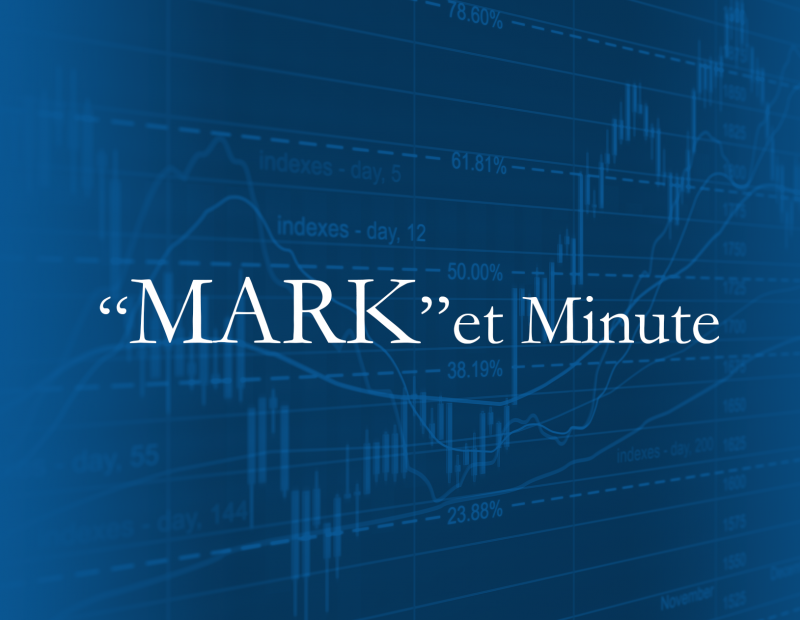Market Indices as of Market Close March 30th, 2016
Dow 17,716 (1.67% YTD)
S&P 2,063 (0.98% YTD)
NASDAQ 4,869 (-2.76% YTD)
Global Dow 2,323 (2,033 52 week low /2,644 high)
10-year Treasury 1.82 (1.53 52 week low /2.50 high)
Gold 1,227 ($1,047 52 week low /high $1,288)
Oil $38.14 ($29.85 52 week low /high $65.39)
Wall Street plows higher as anxiety falls to seven-month low
- U.S. stocks plowed further into positive territory for 2016 on Wednesday, helped for a second session by comments from Federal Reserve Chair Janet Yellen that eased anxiety about potential interest rate hikes.
- MetLife and other financial stocks led the market higher with Apple and other technology stocks also gaining.
- Yellen said on Tuesday the U.S. central bank should proceed cautiously as it looks to raise interest rates. On Wednesday, her comments were echoed by Chicago Fed President Charles Evans, who said there was a high hurdle to raising rates in April, given low inflation.
- That soothed investors who have been on edge for months about a slow global economy, a strong dollar, volatile oil prices and lackluster top-line growth at U.S. companies.
- The CBOE Market Volatility Index .VIX, Wall Street’s “fear gauge”, ended down 1.9 percent at its lowest level since August, just before fears of a financial crisis in China sparked pandemonium in global markets.
- “The market’s best friend continues to be the Fed and central banks around the world,” said Jeff Carbone, co-founder of Cornerstone Financial Partners in Charlotte, North Carolina. “Investor appetite for risk has increased.”
- Higher interest rates are generally bad for stocks because they reduce lending and investment and make it harder for companies to expand. A sputtering global economy and strong dollar have already caused earnings of U.S. companies to shrink and many investors want the Fed to hold off raising rates until after its meetings in April and June.
T. Rowe Price Global Markets Weekly Update
LOWER VOLATILITY IN DOWN WEEK FOR U.S. STOCKS
In a continuation of the year’s broad trading pattern, small-cap stocks lagged large-caps and the technology sector fell more than other segments. The tech-heavy Nasdaq Composite and the Russell 2000 Index of small-cap equities remained firmly in negative territory for the year to date. This week’s downturn also tipped the large-cap Standard & Poor’s 500 Index back into the red for the year to date.
OIL PRICES FALL, BREAKING RECENT STRING OF GAINS
The recent rally in crude oil and other commodities took a breather after data released on Wednesday showed U.S. oil stockpiles reaching a record level. The U.S. dollar strengthened against most other currencies after positive comments about the U.S. economy from Federal Reserve officials. On Monday, both Dennis Lockhart, president of the Federal Reserve Bank of Atlanta, and San Francisco Fed President John Williams pointed out rising growth and emerging signs of inflation and said that a rate hike is possible at either of the Fed’s next two policy meetings.
However, economic data released during the week painted a mixed picture. Sales of existing homes dropped sharply in February, while new home sales rose 2% thanks to a jump in sales in the West. Durable goods orders fell 2.8% in February after a strong January increase, raising some concerns that the January reading was an outlier instead of an indication of a new trend.
Europe
EQUITIES TREND LOWER
Oil, mining, and metals stocks led the pan-European Stoxx Europe 600 Index lower in a holiday-shortened week characterized by thin trading and punctuated by a slump in travel and leisure stocks following Tuesday’s tragic bombing attacks in Brussels. Commodity prices had been largely rising over the last month or so but trended downward as the U.S. dollar strengthened over the past week. As a result, dollar-denominated oil and metals products have become more expensive for holders of other currencies. Adding more pressure to commodity prices are the growing stockpiles of copper and other commodities.
ITALIAN BANKS MOVE TO CONSOLIDATE
In a deal that would create Italy’s third-largest bank by assets, Banco Popolare SC and Banca Popolare di Milano Scarl have agreed to merge following approval of the linkup by the European Central Bank (ECB). Italy’s financial system has been plagued by a high number of bad loans, and this proposed merger, which both banks expect to reach final approval by November, is a move to create a stronger and more consolidated banking sector to support the country’s economic growth. Italian bank stocks have lagged the Eurozone banking sector this year.
SOME RESILIENCE SEEN IN THE EUROZONE
Eurozone economic activity rebounded in March, an unexpected surprise that could ease concerns about a sharp slowdown in the global economy. According to preliminary estimates from data provider Market, the composite purchasing managers’ index (PMI) rose to 53.7 in March from 53.0 in February as businesses reported a slight increase in new orders and more hiring. Eurozone businesses continued to cut prices in an effort to maintain market share and customer interest, but at a slower rate than a month earlier. The concern for the sluggish Eurozone economy is the persistent slowdown in exports.
THIS DAY IN FINANCIAL HISTORY
March 30, 1996: Commodities Market Introduced For Power Supplies
The New York Mercantile Exchange introduced a commodities market for power supplies; a market many feared would be extremely unpredictable.
The views presented are not intended to be relied on as a forecast, research or investment advice and are the opinions of the sources cited and are subject to change based on subsequent developments. They are not a recommendation, offer or solicitation to buy or sell any securities or to adopt any investments.
http://www.reuters.com/article/us-usa-stocks-idUSKCN0WW17A?feedType=RSS&feedName=businessNews
https://www3.troweprice.com/usis/iinvestor/en/planning-and-research/t-rowe-price-insights/markets/global-markets-weekly-update.html
http://www.econedlink.org/economic-calendar.php?month=3


Leave A Comment